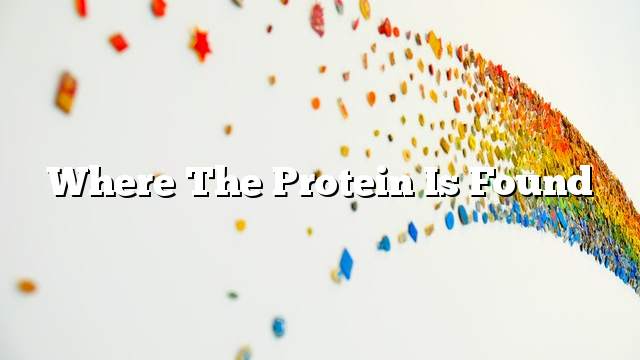Proteins
Protein is a group of amino acids that bind to each other by a peptide bond. Protein enters the structure of all living cells, including viruses. Protein plays an important role in building muscles of the body, skin and bones, as well as the use of proteins within the biological processes within the human body.
Sources of protein
Plant sources
Proteins are found in vegetables and fruits, such as guava, oranges, and bananas. Proteins taken from plant sources are incomplete because they lack one or two amino acids. Plant proteins are also found in legumes, such as peas, lentils, beans, Chickpeas, soybeans, and beans. Legumes are the most common source of protein. Nuts such as almonds, walnuts, black beans, and cashews are a large store of proteins and are also low in fat.
Animal sources
Animal sources are rich in proteins because they contain all the amino acids necessary for the production of essential proteins in the body, such as beef, goats, white meat such as chicken and seafood, fish, shellfish and other foods. White meat is better than red meat for the low fat content , And animal products are an important source of proteins such as dairy products such as milk, cream and cheese of various kinds and eggs, and also provides calcium, vitamins and minerals needed for the body, which provides many benefits.
Benefits of proteins
- Builds the basic structure of the body from bones, muscles, fibers, ligaments and tissues.
- Enhances the immune system of the body and strengthens the production of white cells, which is the first line of defense of the body.
- Helps in the body’s vital processes such as regulating digestion, circulation and metabolism.
- The body needs adequate amounts of protein to produce the enzymes and hormones needed by the body.
- Helps in the breathing process, such as the hemoglobin protein, which stabilizes oxygen in the red blood cells to transport it throughout the body.
- It works to strengthen the nervous system in humans, it works to build neurotransmitters in the body.
Damage to protein deficiency
- Muscle and bone weakness and loss of the tissues due to the so-called muscle replacement, as the body resort to compensate for the lack of proteins by taking proteins found in the muscles and bones.
- Weakness of the heart muscle due to lack of sufficient oxygen to the body.
- Weak immune system in humans.
- The body’s fatigue and the occurrence of a large shortage of hormones in the body such as growth hormone and male hormone, which leads to delayed body growth and sexual weakness.
Tips For Proteins
- Choose meat that has a low fat content, and prefer white meat to red meat.
- Eat seafood that contains Omega 3 like salmon.
- Stay away from processed meat such as sausage and sausage.
